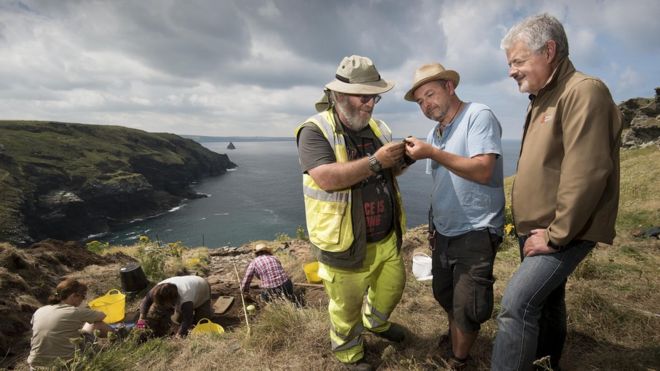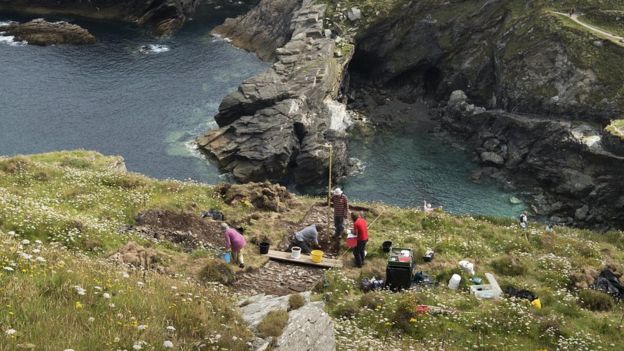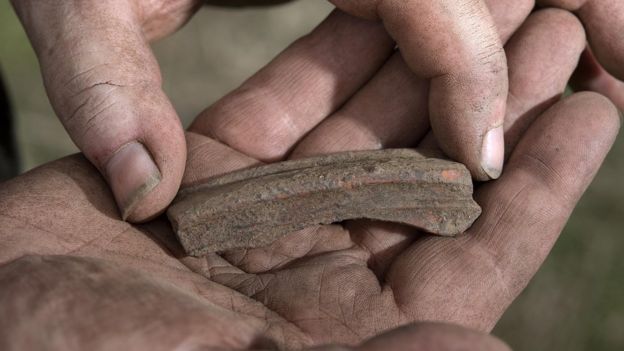 ENGLISH HERITAGE
ENGLISH HERITAGE
The royal residence of 6th Century rulers is believed to have been discovered at the legendary birthplace of King Arthur.
Archaeologists have unearthed walls about 1m (3ft) thick at Tintagel Castle in Cornwall in the first excavation of a five-year English Heritage project.
It is thought the walls formed part of the seat of the rulers of the early medieval kingdom of Dumnonia.
Winn Scutt from English Heritage said it was a "very dense settlement".
"It's a complex of buildings and many people since the 1980s have argued that it's a royal centre, and that it's the royal centre of the kingdom of Dumnonia", the properties curator said.
"We haven't found any others, so it's quite possible that this was the centre, and maybe they were static."
 ENGLISH HERITAGE
ENGLISH HERITAGE
Some of the buildings had been excavated in the 1930s by the British archaeologist Ralegh Radford who had thought they formed part of a monastery, Mr Scutt said.
He added the excavations did not tell us "anything" about King Arthur, the legendary ruler who was conceived at Tintagel Castle according to the 12th Century writer Geoffrey of Monmouth.
Discoveries at the site also include large amounts of pottery from the eastern Mediterranean used for olive oil and wine, as well as Merovingian glass and fine Phocaean tableware from the west coast of Turkey.
 ENGLISH HERITAGE
ENGLISH HERITAGE
Mr Scutt said the richness of the discoveries made Tintagel "one of the most important sites in western Europe".
"It isn't just a trading centre to move olive oil around, they're actually indulging in it, they're feasting here", he said.
English Heritage has appointed Cornwall Archaeological Unit (CAU) to carry out the excavations which form the first major research project of the area since the 1990s.